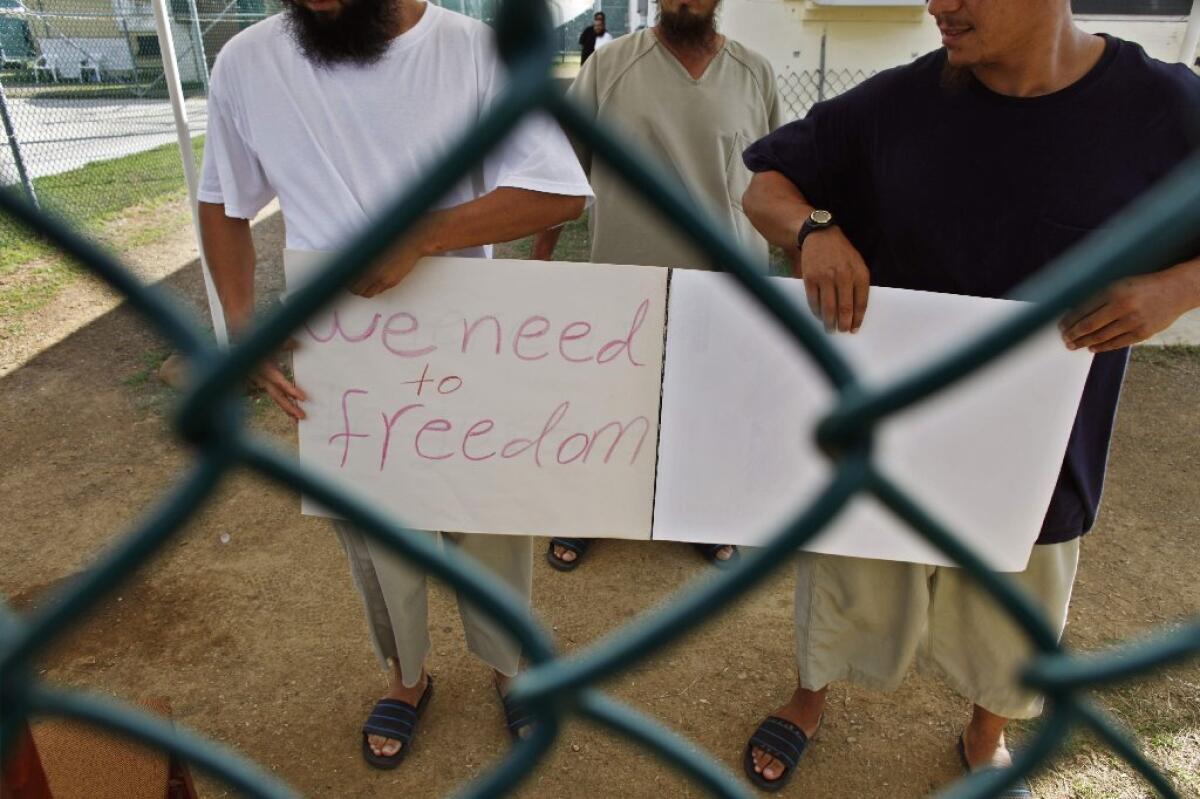The Uighurs leave Guantanamo -- but not for the U.S.

- Share via
With the release of the remaining three Uighur inmates at Guantanamo Bay, the Obama administration has ended one of the most poignant chapters in the story of the detention center at Guantanamo Bay, Cuba. It’s no longer controversial that many of the men who ended up at Guantanamo were bystanders and wannabes, not anti-American terrorists, and the 22 Uighurs -- Muslims from Western China -- were an especially sympathetic group.
The Uighurs had traveled to Afghanistan, where they joined training camps run by a Uighur separatist group. After the United States launched a military offensive in Afghanistan, they fled to Pakistan, where they were captured by Pakistani and other coalition forces and brought to Guantanamo. Eventually they were cleared of being enemy combatants, and a federal judge ordered that they be released in this country where there is a vibrant Uighur community. But an appeals court reversed that decision and the Supreme Court refused to take their case.
The last of the Uighurs -- Yusef Abbas, Saidullah Khalik and Hajiakbar Abdul Ghuper -- were flown to Slovakia. Other Uighurs have ended up in Albania, Switzerland, Palau, Bermuda and El Salvador. Given Congress’ determination that Guantanamo inmates not be released in the United States – or confined here, for that matter -- it was probably unrealistic for them to expect to find a haven in this country. But resettling them in the U.S. would have been compassionate compensation for their long imprisonment under what were essentially false pretenses.
The Uighurs’ release is part of a larger mini-exodus from Guantanamo that is likely to accelerate now that Congress has loosened restrictions on transferring inmates abroad. But President Obama’s moldy promise to close Guantanamo is still far from being redeemed. The administration continues to insist that some inmates are too dangerous to be released and can’t be put on trial (though Obama suggested vaguely last year that their status could “be resolved, consistent with our commitment to the rule of law.”) And Congress continues to block the transfer of those hard-core inmates to even a maximum-security prison in the U.S.
But at least the last of the Uighurs have gotten their release – even if it means settling in Slovakia.
ALSO:
Follow Michael McGough on Twitter @MichaelMcGough3
More to Read
A cure for the common opinion
Get thought-provoking perspectives with our weekly newsletter.
You may occasionally receive promotional content from the Los Angeles Times.







